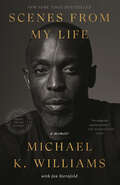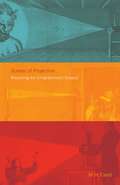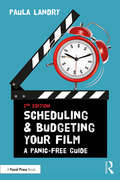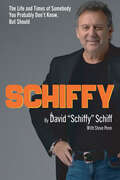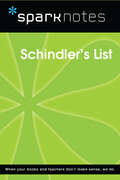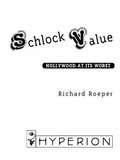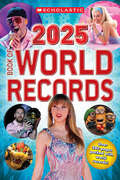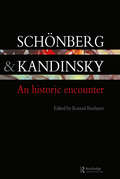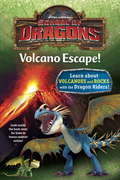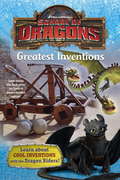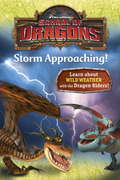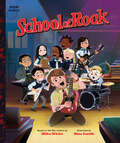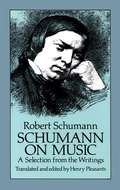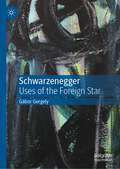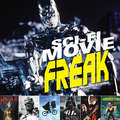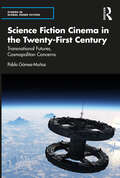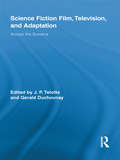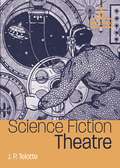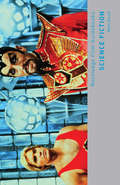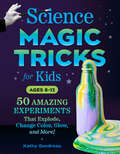- Table View
- List View
Scenes from My Life: A Memoir
by Jon Sternfeld Michael K. WilliamsA moving, unflinching memoir of hard-won success, struggles with addiction, and a lifelong mission to give back—from the late iconic actor beloved for his roles in The Wire, Boardwalk Empire, and Lovecraft CountryWhen Michael K. Williams died on September 6, 2021, he left behind a career as one of the most electrifying actors of his generation. From his star turn as Omar Little in The Wire to Chalky White in Boardwalk Empire to Emmy-nominated roles in HBO&’s The Night Of and Lovecraft Country, Williams inhabited a slew of indelible roles that he portrayed with a rawness and vulnerability that leapt off the screen. Beyond the nominations and acclaim, Williams played characters who connected, whose humanity couldn&’t be denied, whose stories were too often left out of the main narrative.At the time of his death, Williams had nearly finished a memoir that tells the story of his past while looking to the future, a book that merges his life and his life&’s work. Mike, as his friends knew him, was so much more than an actor. In Scenes from My Life, he traces his life in whole, from his childhood in East Flatbush and his early years as a dancer to his battles with addiction and the bar fight that left his face with his distinguishing scar. He was a committed Brooklyn resident and activist who dedicated his life to working with social justice organizations and his community, especially in helping at-risk youth find their voice and carve out their future. Williams worked to keep the spotlight on those he fought for and with, whom he believed in with his whole heart.Imbued with poignance and raw honesty, Scenes from My Life is the story of a performer who gave his all to everything he did—in his own voice, in his own words, as only he could.
Scenes of Projection: Recasting the Enlightenment Subject
by Jill H. CasidTheorizing vision and power at the intersections of the histories of psychoanalysis, media, scientific method, and colonization, Scenes of Projection poaches the prized instruments at the heart of the so-called scientific revolution: the projecting telescope, camera obscura, magic lantern, solar microscope, and prism. From the beginnings of what is retrospectively enshrined as the origins of the Enlightenment and in the wake of colonization, the scene of projection has functioned as a contraption for creating a fantasy subject of discarnate vision for the exercise of &“reason.&” Jill H. Casid demonstrates across a range of sites that the scene of projection is neither a static diagram of power nor a fixed architecture but rather a pedagogical setup that operates as an influencing machine of persistent training. Thinking with queer and feminist art projects that take up old devices for casting an image to reorient this apparatus of power that produces its subject, Scenes of Projection offers a set of theses on the possibilities for felt embodiment out of the damaged and difficult pasts that haunt our present.
Schau-Prozesse: Gericht und Theater als Bühnen des Politischen (Literatur und Recht #8)
by Stefan Arnold Kerstin WilhelmsGerichtsprozesse wie der NSU-Prozess haben große mediale Aufmerksamkeit erfahren und sind zum Stoff von zahlreichen Theaterinszenierungen geworden. Solche publikumswirksamen ‚Schau-Prozesse‘ zeigen, wie Gericht und Theater zu Bühnen des Politischen werden. Dabei wird deutlich, dass Recht und Theater viel fundamentaler verbunden sind, als bislang diskutiert: Sie konstituieren sich gegenseitig. Theatrale Elemente sind für das Recht unverzichtbar und umgekehrt prägen Rechtsinszenierungen das Theater. Die Beiträge des interdisziplinären Bandes analysieren diese Wechselseitigkeit und fokussieren die politische Performance im Theater und im Recht.
Scheduling and Budgeting Your Film: A Panic-Free Guide (American Film Market Presents)
by Paula LandryBudgeting and scheduling are easy in principle but hard in practice. The successful producer has a solid plan for juggling dozens of activities and costs while retaining the flexibility to cope with those inevitable last-minute changes and stay on course. Preplanning the budget and schedule of any media project is absolutely essential, and the 2nd edition of Scheduling and Budgeting Your Film: A Panic-Free Guide shows you the intricacies of handling both budgeting and scheduling successfully. This new and updated edition explains the fundamentals of line producing in an easy-to-understand style, and includes tips and techniques that apply no matter what kind of scheduling or budgeting software you’re using. Author Paula Landry includes detailed examples of breakdown forms, organizing resources, distribution expenses, and hidden costs, and discusses how to set realistic priorities and find industry and state tax incentives. The new edition also includes discussions of transmedia and multi-purpose shooting, special considerations for VR, 4K and 3D shooting, new web platforms and mobile technology, crowd funding, film festivals, and much more. Each chapter is filled with handy checklists, tips, practical advice, and anecdotes, showing how scheduling and budgeting are done in the real world; Principles apply to any type of media project: film, video, music video, projects hosted online, and corporate and educational videos; An accompanying eResources page offers downloadable forms and templates, and other essential resources.
Schiffy - The Life and Times of Somebody You Probably Don't Know, But Should
by David SchiffSchiffy - The Life and Times of Somebody You Probably Don't Know, But Should is the story of David "Schiffy" Schiff, an internationally recognized as the go-to Orals Coach for some of the world's largest companies and has helped them win billions of dollars by securing highly lucrative government and defense contracts. Schiffy has successfully leveraged his four Emmy Awards for directing to help people tell their stories in a profound and differentiating way. Along the way he has won hundreds of international awards for excellence in his video production work, music, and event management. Schiffy knows he is only as good as the people he surrounds himself with. Whether working with a senior defense official, a CEO, a high-level Subject Matter Expert, or an actor, Schiffy makes them better at what they do. When not off on an adventure, playing his drum kit or winning big-money contracts, Schiffy is dedicated to helping a variety of charities and foundations with his generosity and passion. A note from the author: It is my sincere hope you will find value beyond the stories I tell here. We all have stories to tell. Are mine more interesting than most? I will leave it to you to decide, but I want you to remember one thing as you read the stories we lay out here: I have never had a plan for my life, I have let my life guide me, and have tried to seize the opportunities which came my way time after time - seemingly out of nowhere. More than anything, I want to convey in these pages that our lives bring us gifts which arrive to shape us and our future in ways we least expect. They mold our character and move us forward in directions we never could have imagined. I hope you like the ones I share with you in this book. Not because I'm a famous guy. But because I met those challenges, took those chances and made my life immensely richer for it.
Schindler's List (SparkNotes Film Guide)
by SparkNotesSchindler's List (SparkNotes Film Guide) Making the reading experience fun! SparkNotes Film Guides are one-stop guides to great works of film–masterpieces that are the foundations of filmmaking and film studies. Inside each guide you&’ll find thorough, insightful overviews of films from a variety of genres, styles, and time periods. Each film guide contains:Information about the director and the context in which the film was made Thoughtful analysis of major characters Details about themes, motifs, and symbols Explanations of the most important lines of dialogue In-depth discussions about what makes a film so remarkable SparkNotes Film Guides are an invaluable resource for students or anyone who wants to gain a deeper understanding of the great films they know and love.
Schlock Value: Hollywood at Its Worst
by Richard RoeperA hilarious collection of essays, riffs, and lists that celebrate the insanity of Hollywood--for anyone who loves the movies. Richard Roeper, like the rest of us, adores the movies. In this uproarious, off-beat book, he gives us a whole new set of critical lenses for assessing the movies and the people and the industry that make them. With his characteristic acerbic wit, he weaves short essays with lists that work together to explain where Hollywood succeeds--and where it so often frustrates, disappoints, and fails us. But while Roeper devotes most of the book to mockery and ridicule, this book is, in the end, a love letter to film. Some of the essays and lists included in Schlock Value: Comical statistical breakdowns, including career batting averages of actors Reviews of Hollywood finances, including budgets, salaries, and ticket prices A proposed moratorium on pet projects, e.g., Kevin Costner's The Postman or John Travolta's Battlefield Earth The age differences between Woody Allen and his various leading ladies Actors appearing around the world in television commercials, including a list of the biggest stars that do overseas commercials--and the products they push Schlock Value is the perfect book for anyone who loves grumbling and complaining about the movies--but still can't help spending their weekends and evenings in front of the screen.
Schlüsselwerke der Medienwissenschaft
by Ivo RitzerDer Band stellt ausgewählte Positionen und zentrale Ideen im disziplinären Rahmen der Medienwissenschaft vor. Schwerpunkte liegen auf medienphilosophischen Ansätzen und einer kulturtheoretischen Perspektive, die sich vor einem dezidiert geisteswissenschaftlichen Horizont konturiert. Dabei versteht der Band sich nicht nur als Handbuch und Nachschlagewerk für Studierende wie Lehrende, er soll vielmehr auch einen eigenen Beitrag zur medienwissenschaftlichen Theoriebildung leisten.
Schoenberg and Hollywood Modernism
by Kenneth H. MarcusSchoenberg is often viewed as an isolated composer who was ill-at-ease in exile. In this book Kenneth H. Marcus shows that in fact Schoenberg's connections to Hollywood ran deep, and most of the composer's exile compositions had some connection to the cultural and intellectual environment in which he found himself. He was friends with numerous successful film industry figures, including George Gershwin, Oscar Levant, David Raksin and Alfred Newman, and each contributed to the composer's life and work in different ways: helping him to obtain students, making recordings of his music, and arranging commissions. While teaching at both the University of Southern California and the University of California, Los Angeles, Schoenberg was able to bridge two utterly different worlds: the film industry and the academy. Marcus shows that alongside Schoenberg's vital impact upon Southern California Modernism through his pedagogy, compositions and texts, he also taught students who became central to American musical modernism, including John Cage and Lou Harrison.
Scholastic Book of World Records 2025
by ScholasticIt's another incredible year for world records, social media sensations, and pop-culture trends! This must-have guide to 2025 covers everything from science, tech, sports, music, movies, animals, and more.What is the most popular dog breed?What is the most successful movie of all time?Which NBA player was the youngest to reach 30,000 points?This book is packed with the answers to these questions and MORE! Read all about the biggest, best, and most buzzworthy world records in music, movies, sports, technology, video games, science, nature, states, and animals.
Schonberg and Kandinsky: An Historic Encounter (Contemporary Music Studies)
by Konrad BoehmerFirst Published in 1998. Routledge is an imprint of Taylor & Francis, an informa company.
School of Dragons #1: Volcano Escape! (DreamWorks Dragons)
by Random House Kathleen Weidner ZoehfeldAn all-new nonfiction series featuring DreamWorks Dragons! Hiccup, Toothless, and other exciting characters from DreamWorks Dragons help readers discover the real-life science and history behind volcanoes! Filled with full-color photos and lots of fun facts, these 80-page books based on JumpStart's School of Dragons online game are the perfect way to help young readers soar into the world of nonfiction.From the Trade Paperback edition.
School of Dragons #2: Greatest Inventions (DreamWorks Dragons)
by Random House Nancy CastaldoAn all-new nonfiction series featuring DreamWorks Dragons! Hiccup, Toothless, and other exciting characters from DreamWorks Dragons help readers learn all about ancient and modern inventions--even some amazing inventions created by kids! Filled with full-color photos and lots of fun facts, these 80-page books based on JumpStart's School of Dragons online game are the perfect way to help young readers soar into the world of nonfiction.
School of Dragons #3: Storm Approaching! (DreamWorks Dragons)
by Random House Kathleen Weidner ZoehfeldAn all-new nonfiction series featuring DreamWorks Dragons!Hiccup, Toothless, and other exciting characters from DreamWorks Dragons teach readers about tornadoes, blizzards, hurricanes, and more of Earth's deadliest weather! Filled with full-color photos and lots of fun facts, these 80-page books based on JumpStart's School of Dragons online game are the perfect way to help young readers soar into the world of nonfiction.
School of Rock: The Classic Illustrated Storybook (Pop Classics #10)
by Kim SmithFor those about to read . . . we salute you! The zany and much-beloved comedy-musical film about pint-sized rockers sticking it to the man is now an adorable picture book! It&’s just another ordinary day at Horace Green Prep School, and the students think they&’re getting just another ordinary substitute teacher. Instead, Dewey Finn, a washed-up musician with dreams of greatness, whisks them away on a totally rocking adventure. After Dewey hears the kids practicing in music class, he discovers how talented they are and realizes he has another chance at his greatest dream: winning the Battle of the Bands. But when the parents discover what Dewey has been teaching their kids, will the School of Rock even be able to compete?With all the iconic moments and laugh-out-loud lines from the film included, the book's charm and spirit shines on every page. This delightful story of a diverse and passionate group of children coming into their own is a must-have for fans of the film, parents of musical kids, and anyone who&’s ever stuck it to the man!
Schooling in Modernity
by Paola BonifazioBetween 1948 and the end of the 1950s, Italian and American government agencies and corporations commissioned hundreds of short films for domestic and foreign consumption on topics such as the fight against unemployment, the transformation of rural and urban spaces, and the re-establishment of democratic regimes in Italy and throughout Europe. In Schooling in Modernity, Paola Bonifazio investigates the ways in which these sponsored films promoted a particular vision of modernization and industry and functioned as tools to govern the Italian people.The author uses extensive archival research and various theoretical approaches to examine the politics of sponsored filmmaking in postwar Italy. Among the many topics explored are target audiences and audience response, sources of funding, censorship, debates on cinematic realism, and the connections and differences between American and Italian strategies and styles of documentary filmmaking. Insightful and richly detailed, Schooling in Modernity shows the importance of these under-appreciated films in the postwar modernization process, the transition from Fascism to democracy, and Italy's involvement in the Cold War.
Schumann on Music: A Selection from the Writings
by Robert Schumann Henry PleasantsIncludes 61 important critical pieces Schumann wrote for the Neue Zeitschrift fur Musik 1834-1844. Perceptive evaluations of Beethoven, Chopin, Schubert, other giants; also Spohr, Moscheles, Field, other minor masters. Annotated.
Schwarzenegger: Uses of the Foreign Star
by Gábor GergelyThis book analyses the uses of Arnold Schwarzenegger as a foreign star in Hollywood through a film philosophical, de-westernizing and sonic critical framework. It offers very close readings of the film texts, of the roles Schwarzenegger performs, and the rhetorical strategies he adopts outside his film performances to show that in spite of attempts to occupy the position of an emblematic member of the U.S. national body Schwarzenegger remains irrevocably outside as an accented migrant body continuously accumulating markers of belonging that by their very necessity attest to their insufficiency. The book’s central project is to trace back, from the uses to which a migrant star such as Schwarzenegger is put on the screen, the construction of a sense or idea of a U.S. national community through the cinema. Given that the appeal to the American myth of an immigrant nation that promises to erase difference is fundamental to the Schwarzenegger star persona, the central aim of this book is to explore the uses of his stardom as an embodiment of the promise of America and its contradictions and exclusions.
Sci-Fi Movie Freak
by Robert C. Ring"I'll be back." -- The Terminator, The Terminator (1984) To the movies, that is. And so will you with the help of Sci-Fi Movie Freak, a celebration of some of the greatest science-fiction movies of all time. Your inner geek will freak finding everything from classics like Metropolis, Forbidden Planet, and 2001: A Space Odyssey to modern movies including Avatar, Moon, and Inception, and even the entertaining "failures" like Robot Monster, Gammera the Invincible, and Battlefield Earth. Movies are divided into various chapters including Best of the Best, Further Essentials, and Lesser-Known Gems. Features more than 100 movies 250+ photos of movie stills and posters Top 10 lists of the best directors, female characters, villains and moreFree DVD included of the magnificently bad cult classic Plan 9 From Outer Space.
Science Fiction Cinema in the Twenty-First Century: Transnational Futures, Cosmopolitan Concerns (Studies in Global Genre Fiction)
by Pablo Gómez-MuñozRecent films are increasingly using themes and conventions of science fiction such as dystopian societies, catastrophic environmental disasters, apocalyptic scenarios, aliens, monsters, time travel, teleportation, and supernatural abilities to address cosmopolitan concerns such as human rights, climate change, economic precarity, and mobility. This book identifies and analyses the new transnational turn towards cosmopolitanism in science fiction cinema since the beginning of the twenty-first century. The book considers a wide selection of examples, including case studies of films such as Elysium, In Time, 2012, Andrew Niccol’s The Host, Codependent Lesbian Space Alien Seeks Same, and Cloud Atlas. It also questions the seeming cosmopolitanism of these narratives and exposes how they sometimes reproduce social hierarchies and exploitative practices. Dealing with diverse, interdisciplinary concerns represented in cinema, this book in the Studies in Global Genre Fiction series will be of interest to readers and scholars working in the fields of science fiction, film and media studies, cosmopolitanism, border theory, popular culture, and cultural studies. It will also appeal to fans of science fiction cinema and literature.
Science Fiction Cinema in the Twenty-First Century: Transnational Futures, Cosmopolitan Concerns (Studies in Global Genre Fiction)
by Pablo Gómez-MuñozRecent films are increasingly using themes and conventions of science fiction such as dystopian societies, catastrophic environmental disasters, apocalyptic scenarios, aliens, monsters, time travel, teleportation, and supernatural abilities to address cosmopolitan concerns such as human rights, climate change, economic precarity, and mobility. This book identifies and analyses the new transnational turn towards cosmopolitanism in science fiction cinema since the beginning of the twenty-first century.The book considers a wide selection of examples, including case studies of films such as Elysium, In Time, 2012, Andrew Niccol’s The Host, Codependent Lesbian Space Alien Seeks Same, and Cloud Atlas. It also questions the seeming cosmopolitanism of these narratives and exposes how they sometimes reproduce social hierarchies and exploitative practices.Dealing with diverse, interdisciplinary concerns represented in cinema, this book in the Studies in Global Genre Fiction series will be of interest to readers and scholars working in the fields of science fiction, film and media studies, cosmopolitanism, border theory, popular culture, and cultural studies. It will also appeal to fans of science fiction cinema and literature.
Science Fiction Film, Television, and Adaptation: Across the Screens (Routledge Research in Cultural and Media Studies)
by J. P. Telotte and Gerald DuchovnayWhile film and television seem to be closely allied screen media, our feature films and television series have seldom been successfully adapted across those screens. In fact, rather than functioning as portals, those allied media often seem, quite literally, screens that filter out something that made the source work so popular in its original form. Differences in budget, running times, cast, viewing habits, screen size and shape all come into play, and this volume’s aim is to track a number of popular texts in the course of their adaptive journeys across the screens in order to sketch the workings of that cross-media adaptation. For its specific examples, the volume draws on a single genre—science fiction—not only because it is one of the most popular today in either film or television, but also because it is arguably the most self-conscious of contemporary genres, and thus one that most obviously frames the terms of these technological adaptations. The essays included here mine that reflexive character, in both highly successful and in failed efforts at cross-media adaption, to help us understand what film and television achieve in screening science fiction, and to reveal some of the key issues involved in all of our efforts to navigate the various screens that have become part of contemporary culture.
Science Fiction Theatre (TV Milestones Series)
by J. P. TelotteIn the wake of the juvenile space operas of the early 1950s, a groundbreaking series debuted and paved the way for one of viewers’ favorite genres today: adult-oriented science fiction. Science Fiction Theatre aired with a fresh anthology-style narrative from the vision of veteran producer Ivan Tors and with compelling narration by Truman Bradley. Created by industry-leading syndicator Ziv Television Programs, the show pioneered a scientifically based approach to aliens, telepathy, and the mysteries of the universe that provided a model for Rod Serling’s The Twilight Zone (1959–64) and a myriad of acclaimed programs that followed, including The Outer Limits (1963–65), The Ray Bradbury Theater (1985–92),and Black Mirror (2011–present). This book contextualizes Science Fiction Theatre within the budding American television industry of the 1950s, as powerful networks and independent producers and syndicators vied to create and distribute programming to an audience eager to embrace this new, free medium. Including a complete videography of this historically neglected series, author J. P. Telotte illuminates Science Fiction Theatre as a touchstone for understanding the development of science fiction media and the dynamic nature of early television broadcasting.
Science Fiction: Marxism And Science Fiction (Routledge Film Guidebooks)
by Dr Mark BouldScience Fiction explores the genre from 1895 to the present day, drawing on examples from over forty countries. It raises questions about the relationship between science fiction, science and technology, and examines the interrelationships between spectacle, narrative and self-reflexivity, paying particular attention to the role of special effects in creating meaning and affect. It explores science fiction’s evocations of the sublime, the grotesque, and the camp, and charts the ways in which the genre reproduces and articulates discourses of colonialism, imperialism and neo-liberal globalization. At the same time, Science Fiction provides a thorough analysis of the genre’s representation of race, class, gender and sexuality, making this text an essential guide for students, academics and film fans alike. Key films discussed include: Le voyage dans la lune (1902) 20,000 Leagues under the Sea (1916) L’Atlantide (1921) King Kong (1933, 2005) Gojira (1954) La Jetée (1962) The Abominable Dr Phibes (1971) Tetsuo (1989) Sleep Dealer (2008) Avatar (2009)
Science Magic Tricks for Kids: 50 Amazing Experiments That Explode, Change Color, Glow, and More!
by Kathy GendreauIs it magic? Or is it science? Amaze family and friends with these 50 science experiments designed to work as magic tricks!Make a flame jump from candle to candle, create a cloud in a bottle, and keep water from pouring out of an upside-down container in this exciting science book for kids! Young magicians will thrill to these age-appropriate tricks—and gain confidence in their scientific knowledge and abilities at the same time.Science Magic Tricks for Kids features: 50 magic tricks based on science for kids ages 8−12 using common household materialsA new way of learning science, with clear explanations of the scientific principles behind the magicEasy-to-follow step-by-step instructions and a helpful photo for every trickDetailed directions for putting on a spectacular magic show&“Ask the Audience&” questions that help kids involve their audience (and learn the science before the performance)&“Run with It!&” sections that suggest ways to try each trick with different materials and instructions: How will the results of the trick change?Written by the owner and founder of STEAMboat Studio, a children&’s education center dedicated to bringing fun, hands-on, STEAM-focused learning experiences to students of all ages, Science Magic Tricks for Kids is the perfect science book for budding scientists and magicians.
